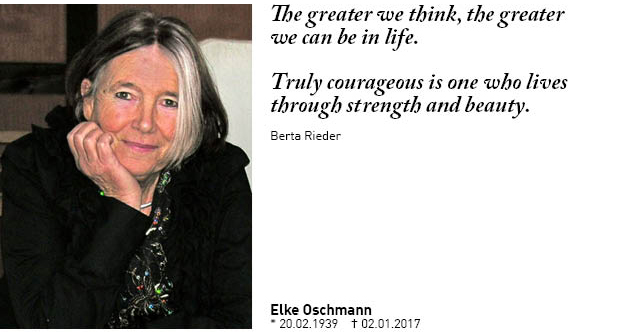The Beginnings of Plastics Engineering
In the 1960s and 70s a real plastics euphoria broke out. Because the term “synthetic plastic material” was so new, it remained the subject of analysis and discussion for some time. Deciding whether or not the words “synthetic” and “plastic” were apt when describing a material that was this strange and new – created by chemists – was a balancing act! At any rate, young people looking forward to an interesting and promising career agreed: they wanted to be part of this!
Klaus and Elke Oschmann decided to devote their time to studying a specialized subject area. Chemists, engineers, technicians and designers realized that, using new processes, new things could be created in industrial mass production that would meet rising consumer demands. This was a heyday in the plastics industry! Machines were developed to inject, cast, form or blow the new material, and the newly created products kept getting bigger. To name but a few, the automotive and aviation industries, medicine, construction and sanitary engineering boomed. This meant that plastics had to be produced, shipped and stored. There had to be efficient ways to stock, weigh and dose the materials and mix them with other components.
Klaus Oschmann designed silo and conveying facilities. He developed and patented dryers for this industry. It was this experience that made him interested in creating his own product. The market was thirsty for innumerable useful instruments to help make operating processes run better. Rationalization took hold everywhere and people began fancying the five-day work week and the eight-hour day. The leisure industry began to stir. Ideas spread unstoppably and creativity knew no bounds – a world without plastics was now unthinkable. At first people did not want to believe this but the parts that could be made from heat or acid resistant material became smaller and smaller and could be combined to work with great precision: plastics engineering entered precision engineering. All these parts had previously been made from metal!
30 years ago, insight into the demands of the battery industry led to the creation of a watering system that remains unsurpassed today. With it, the field is safer, cleaner, more efficient and more environmentally sustainable.
Klaus Oschmann patented and founded the bfs batterie füllungs systeme gmbh, klaus oschmann. Following his untimely death, Elke Oschmann took over the management of the companies. Since then, the development of the bfs system has been continued with the greatest care and the market monitored. Along with existing industrial standards, the highest safety and quality standards form the framework for the tasks of the staff at bfs.
bfs’s central mandate in the 21st century: to contribute to a usage of batteries that is almost clinically clean as well as characterized by availability around the clock. It is our absolute priority to prolong the lifespan of batteries while using and storing energy in increasingly conscious and mindful ways.
Elke G. Oschmann
 |